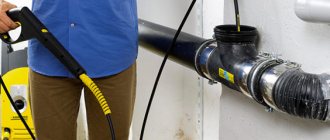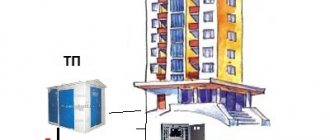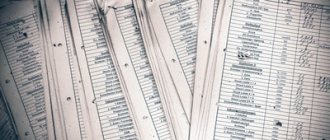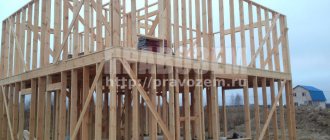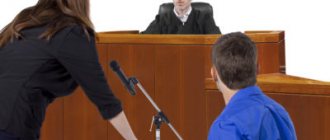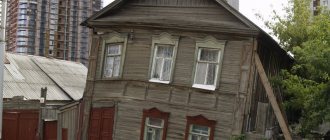Legal disputes involving a regional overhaul operator are usually of two types: the operator collects debt on contributions for repairs or the operator collects debt under construction contracts. But practice is much more varied. Lawyer of MCA "Arbat" Vadim Bashir-Zade selected and analyzed the most interesting cases involving the registrar, management company and homeowners' association.
Management company experience: how to achieve major repairs of houses ahead of schedule
25341
Dispute about non-acceptance of documents on choosing the method of forming a capital repair fund
First, we will consider a dispute between a homeowners’ association and a regional capital repair operator regarding the failure to accept documents on the choice of method for forming a capital repair fund. Resolution 2 of the ACC dated January 27, 2020 No. A82-11230/2019 is about this.
The regional operator's HOA account had accumulated a significant amount of money, with which the owners decided to carry out major repairs of the apartment building. An extraordinary general meeting of owners was held to change the method of forming the capital repair fund from the reoperator's account to a special account of the HOA.
A special bank account was opened and documents were submitted to the operator. However, the regional operator refused to accept the documents. The HOA went to court.
The regional operator claimed that
- the submitted package does not contain a document confirming the fact that the owner of the special account manages the house;
- the agenda of the meeting does not include the wording of the question about the owner of the special account;
- The owners' decisions on the agenda items are not attached.
It was confirmed in court that the owners did not decide to determine the procedure for submitting payment documents, which is the basis for refusing to change the method of forming the capital repair fund. In addition, there was no register of delivery of notices about holding a general meeting to the owners of premises in an apartment building.
As a result, the court refused to satisfy the HOA's demands. The appellate instance upheld the decision.
Can the management company recover the cost of emergency major repairs from the reoperator?
54236
Contributions for major housing repairs: a little about their legal nature
I read the Federal Law of July 29, 2020 No. 257-FZ “On Amendments to the Housing Code of the Russian Federation” (hereinafter referred to as Federal Law No. 257), especially these changes to Part 3 of Art. 158 of the Housing Code of the Russian Federation: “The obligation to pay the costs of major repairs of common property in an apartment building applies to all owners of premises in this building from the moment the ownership of the premises in this building arises. When the ownership of premises in an apartment building is transferred to the new owner, the obligation of the previous owner to pay the costs of major repairs of common property in the apartment building, including the obligation not fulfilled by the previous owner to pay contributions for major repairs, is transferred to the new owner, with the exception of such an obligation not fulfilled The Russian Federation, a subject of the Russian Federation or a municipal entity that is the previous owner of premises in an apartment building .” It is also significant that they are given retroactive force: they apply to legal relations that arose from January 1, 2013.
Let's try to analyze what the political and legal meaning of the changes made is, especially taking into account the fact that the obligation to pay for housing and utilities is personal in nature. The owner's obligation to pay for residential premises and utilities arises from the moment the ownership of such premises arises (clause 5 of part 2 of Article 153 of the RF Housing Code), which is expressly stated in clause 26 of the resolution of the Plenum of the Supreme Court of the Russian Federation dated June 27, 2020 No. 22 “On some issues of consideration by the courts of disputes regarding payment for utilities and residential premises occupied by citizens in an apartment building under a social tenancy agreement or owned by them by right of ownership” (hereinafter referred to as Resolution No. 22). The principle applies here: if you become an owner, you pay for housing and utilities; if you cease to be an owner, you don’t pay. With this approach, the creditor under the obligation to pay a fee (management organization, service provider) had to make demands on the previous owner, and the new owner would pay for his period. Since apartments were sometimes sold by marginalized individuals, it was difficult to get anything from them, and the interests of creditors suffered.
Therefore, at one time in the Housing Code of the Russian Federation, the obligation to pay the costs of major repairs, and then contributions for major repairs, was endowed with the property of following; the corresponding right of claim also acquired this property, which gave it to some extent proprietary features. True, the second mandatory feature of real rights – absoluteness – does not seem to follow from this formulation of the RF Housing Code. One can easily imagine a situation in which the collector of contributions for major repairs has changed, and the citizen, of course, should not lose the rights secured by previously collected contributions. If the new collector of contributions for major repairs has not received any of the funds collected by him from the previous one, the owner of the residential premises must still have the repairs made, as if all the contributions were available. Of course, it would be possible to give this owner the right to claim against the previous collector, but this is pointless. He still won't be able to get the money back. So it made no sense to give an absolute character to the right to pay for capital repairs. All the same, only one person will collect contributions and repair the living space. However, it is possible that in order to recognize an encumbrance as a real one, two signs of real rights are not required at once. The following property is sufficient.
According to clause 11 of Resolution No. 22, “payment for residential premises and utilities for the owner also includes a contribution for major repairs (clause 2 of part 2 of article 154 of the Housing Code of the Russian Federation). If contributions for major repairs are given the special character of a property encumbrance, then it turns out that parts of the same payment have different regimes. One part is endowed with the property of following, and the other is not. Of course, housing and maintenance organizations have long dreamed of giving all types of payments for residential premises the ability to follow, which now have to create artificial obstacles for sellers who have arrears in payments for residential premises and utilities. But for now, this difference remains, and this can be explained by the understatement that remained after the dispute about the nature of contributions for major repairs in the Constitutional Court of the Russian Federation. After all, payment for housing and utilities is made within the framework of ordinary civil obligations: a person, and not his things, is provided with some benefit for which he pays. There are no special grounds for recognizing the obligation to pay this payment as a real encumbrance.
By the way, it is useful to discuss the question of why it is necessary to talk about a proprietary encumbrance, and not about transferring a debt by force of law. The transfer of debt, in theory, should occur once, i.e. if the apartment is resold a second time, then there seems to be no basis for collecting the old debt that was still owed by the first owner. After all, both the assignment of a claim and the transfer of a debt are personal in nature. It is also unclear why the previous owner should be released from the obligation to pay arrears of contributions. He transferred ownership of the apartment by way of singular succession, determining its price taking into account the debt on contributions for major repairs, and, it seems, he owes nothing. The transfer of debt is tied to this succession, in contrast to a real encumbrance. And if there was no succession at all, what happened to the obligation to pay contributions...? Has it survived? Probably yes! In a word, the difference between a real encumbrance and a “revolving” transfer of debt still needs to be discussed.
However, it is unlikely that the legislator thought for a long time about the meaning that he put into the property of following the obligation to pay contributions for major repairs. Its purpose is to have the current owner pay the dues that any previous owner failed to pay. It would be much easier to declare these owners joint and several debtors. So let’s dwell for now on the fact that we are still faced with a proprietary encumbrance, consisting in the presence of a special public obligation. However, the owner’s obligation is not unconditional; it is subject to the statute of limitations, so contributions for major repairs after three years may no longer be considered payable. The need to make major repairs to one’s property, as part of the owner’s burden, does not cease with the expiration of the statute of limitations...
Contributions for major repairs are a way by which the owner bears the burden of maintaining his property, shifting it to other persons. With regard to them, there is no direct connection between the provision of a benefit and the payment of payment, that is, remuneration. Contributions can be made for dozens of years, the owner of the residential premises can change several times during this time, and the sums themselves will be spent on repairing other houses (unless they are accumulated in a special account) - and only after that there will be a counter-provision financed by, say, a public entity . At the same time, the owner is deprived of a choice - to repair his premises himself or make contributions for major repairs. The forced nature of these contributions, of course, infringes on the right of ownership of residential premises, and the time gap between major repairs and contributions gives the latter the property of a forced public legal fee, which is given the property of a property encumbrance. Payment for living quarters and utilities on this basis is fundamentally different from it.
The contribution for major repairs is precisely a public legal fee, and not an individual payment, the right to which is retained by a private individual. Since contributions may, in certain circumstances, be spent on major repairs to other houses, there is no obligation to maintain the appropriate amounts in the accounts of contribution collectors at all times. A similar situation occurs with respect to payments to state social funds (Pension, Social and Health Insurance Funds). Their deficit is periodically covered by the budget, since at the time of making contributions the size of the future payment is unknown and it is unclear when it should be made. Even if a citizen has the right to major repairs, he will have nothing but a bare claim not secured by property. In general, fees spent on the solidary principle cannot have individual remuneration, since there is no clear relationship between them and the reciprocal provision, and you can never claim exactly what you contributed.
If the contribution for major repairs is a public law fee, then the right to demand payment for major repairs belonging to the owner cannot be qualified either as a property right or even as a civil right. It would be strange if the owner’s burden became at the same time his property right. We can talk about the right only when contributions for major repairs were forced to be made to a third party, for example, to a regional operator. If the residential premises require repairs, which are not carried out within the established time frame, you can force them to do this through the court. True, it is unclear how the corresponding court decision will be enforced, since it will be necessary to repair the entire residential building, and not just one apartment. But, undoubtedly, a procedural solution will be found..., for example, for the time being until major repairs are carried out, the owner will be paid to rent a similar apartment. In other words, the right to pay for major repairs most likely has the nature of a special public law, according to which the regional operator is obligated, and in terms of payment for privatized premises that require repairs, the previous lessor, or more precisely, the owner of the lessor.
It is noteworthy that now the following property is not attached to the obligations of the Russian Federation, its constituent entities and municipalities to pay for major repairs in the relevant part. These responsibilities obviously continue to apply to these persons in relation to the period during which they were the owners of the premises. The new owners do not have to fulfill this obligation for them. Thus, the instruction of the Constitutional Court of the Russian Federation to the federal legislator to establish a mechanism for the fulfillment by the former landlord of the obligation to overhaul houses in need of it, which was provided for by Art. 16 of the Law of the Russian Federation “On the privatization of housing stock in the Russian Federation”. This mechanism is that public entities must participate in the financing of capital repairs of residential buildings in the relevant part, see paragraph 6 of the Constitutional Court Resolution No. 10-P of April 12, 2020. The obligation to participate in financing does not have the following property, remaining with the Russian Federation, its constituent entities and municipalities, but applies only to privatized residential premises in houses in need of major repairs. Moreover, most likely, this obligation is not subject to the statute of limitations.
Unfortunately, the law does not define the scope of the monetary obligation of public entities - the Russian Federation, its constituent entities, municipalities - to finance capital repairs of residential premises, nor the procedure for determining it. Of course, they have general competence to maintain the housing stock in the relevant territory in proper condition, but it is not enough. Public figures have so many responsibilities, it’s impossible to keep track of them all. So one can easily imagine a situation in which major repairs need to be carried out, but the regional operator does not have enough money. And nothing can be done except for the owners to “chip in” for repairs in the amount of the missing amount. True, if they do this, there is no mechanism in the law to force a public entity to cover the debt. Stalemate situation…
So, let's summarize. The owner of a residential premises is obliged to pay contributions for major repairs in the manner prescribed by law. This obligation, as well as the right to demand payment of contributions, has a public legal nature, although it is built on the model of a property encumbrance. The owner of a residential property also has a public legal nature to demand payment for capital repairs from the person to whom he made contributions. Moreover, no one freed the apartment owner from the burden of maintaining their property. This burden continues to weigh on him. And if it happens that there is no and will not be money for major repairs, the regional operator is insolvent, and nothing could be received from the relevant public entity for its debts in the form of subsidiary liability, the owner, despite paying dues, will be left alone with his dilapidated housing. Let us add to this that in the event of bankruptcy of a bank in which there was a special account where contributions for capital repairs were accumulated, the risks, as a rule, are also borne by the payers of the contributions.
Dispute regarding the provision of documents related to the opening and maintenance of a special account
The second dispute also occurred between the regional operator and the homeowners' association. It is about the obligation to provide documents and information related to the opening and maintenance of a special account. Based on the materials of Resolution 16 of the AAS dated March 23, 2020 in case No. A22-1762/2019.
At a meeting of owners of apartment building premises, a method for forming a capital repair fund in a special account was determined. The owner of the special account was the HOA.
Three years later, the city administration adopted a resolution regarding this house on the formation of a capital repair fund on the account of the regional operator. Considering that there were funds remaining in the HOA’s special account, the operator went to court with demands to transfer the balance to him, as well as to provide documents and information related to the maintenance of this account.
The court found no grounds to satisfy the regional operator's claims. In the decision, the department referred to the current housing legislation, as well as to the resolution of the Constitutional Court of the Russian Federation dated April 12, 2016 No. 10-P, according to which the choice of the method of forming a capital repair fund for common property in an apartment building is the result of the free will of the owners.
The appellate court agreed with the findings of the lower court, leaving the regional operator's complaint unsatisfied.
Judicial practice in 2020 on contributions for major repairs: to pay or not
- The contribution amount, which should not be less than the tariff established by the state. But, if the residents wish, it can be increased.
- Make a list of repair services that will be provided through contributions.
- Period of provision of repair services.
- The banking institution where an account will be opened for storing funds.
- Who will be the owner of the current account is an important point, because the house is not a legal entity. face.
- The contractor who will provide repair services. It is also necessary to draw up a preliminary estimate.
We recommend reading: Min Pension in Crimea in 2020
Background information: Let us note that there are many controlled real estate objects for one operator. Responsible persons are required to know the condition of each object. But practice shows that they do not possess such knowledge. Therefore, it is not a fact that the house’s overhaul is carried out according to the specified period. It also remains questionable how the problems will be resolved.
Dispute regarding collection of remuneration under an agency agreement
The third dispute occurred between the management organization and the regional operator and concerned the collection of remuneration under the agency agreement. The conclusions in case No. A41-111450/2019 dated 06/11/2020 were made by the AS MO.
The management organization entered into an agency agreement with the regional operator. His subject was
- activities for accrual, collection and processing of contributions for major repairs of common property in apartment buildings;
- delivery of payment documents to property owners;
- conducting claims work for the purpose of collecting and collecting debt on contributions for major repairs.
The MA sent certificates of services rendered to the regional operator, however, the operator did not fulfill its obligations to pay remuneration.
Since the regional operator did not provide a reasoned refusal, and the operator did not provide evidence of payment of the agency fee, the management organization’s demands were satisfied by the court in full.
Can the bank write off the HOA’s debt from the special capital repair account?
44490
To pay or not for major repairs of apartment buildings in 2020
On the website of the registrar, as well as in the state information system of housing and communal services, there is detailed information about each house in the region, territory, republic, which is included in the regional overhaul program. If your house is included in the program, information will be available on the repair period (within three years), on the types of work performed and other data. In addition, at least six months before the renovation, the regional fund warns about the event and informs the owners of the apartment buildings about the estimated cost, scope of work, etc. The owners discuss this at a meeting and elect an owner representative to monitor the progress and outcome of the repairs.
In the Omsk region there is complete chaos with major repairs! In the village they send receipts to everyone, even 90-year-olds, hoping for illiteracy. Houses in rural areas are 40-5 years old. People repair them themselves, old people’s pensions are small, but the city doesn’t care, everyone is treated with the same brush! They promise a complete renovation in 2053! It's like we have a life expectancy of 110 years! The trial has already been held without notifying anyone. One major repair has already been stolen, now they are collecting money for someone else “for poverty.” What kind of legislators we have! They don't think about the people at all! How people survive - they don’t care! The fund has been elevated to law! It's mind boggling! After all, according to the Constitution, I may not pay for services not provided! But they only promise them to me in 40 years! What are they doing in the Duma? Why don't they stop this chaos? And where is our president? If you are going to collect money for major repairs, then only specifically for each house, and not create parasites!
We recommend reading: Family Income Amount to Obtain Low-Income Family Status 2020 Arkhangelsk
The management company and the homeowners association will strive for independence from the operator
Arbat MCA lawyer Vadim Bashir-Zadeh comments on judicial practice:
“The bulk of legal disputes with regional operators of capital repairs will remain quite common in the future: management organizations will continue to hold operators accountable under construction contracts, and they will collect arrears from management companies regarding contributions for capital repairs.
Some controversial situations will arise when the management organization or HOA creates a special account for transferring contributions for major repairs. I assume that more and more management companies and homeowners associations will independently charge contributions to a special account for later use. This trend towards independence from regional operators in matters of major repairs is already visible.”
How not to pay for major repairs legally in 2020
- repair work can be carried out at any time of the year. Including on an emergency basis - in case of emergency situations;
- the fund must have a capital improvement plan for at least a year;
- before implementing planned activities, a cost estimate is drawn up and the reality of repairs at the current moment is assessed;
- Fund balances are transferred to account for future periods.
- Restoration of building facades;
- Repair and reconstruction of basements and communications located in them;
- Restoration and timely renewal of the roof of the building;
- Regular restoration of the foundation of the building;
- Repair of elevators and equipping them with new mechanisms;
- Restoration of communication networks (heating, water, gas, sewerage, etc.).
Major repairs: you have to pay
There is a much more effective way to avoid paying for major repairs - pay little by little. I accidentally paid the first receipt, not knowing anything about this fund, thinking that the management company would do major repairs. Then our payment for major repairs was connected to the heating networks, I paid the heating networks through Sberbank. And the payment was distributed proportionally, I ended up owing money everywhere. Since then I have been paying heating networks via the Internet into my account. And although the total debt has exceeded 20,000, there are no subpoenas yet. And then I read that this is exactly how housing and communal services defaulters accumulate hundreds of thousands of debts.
So far I have received threats from the bouncers of the Rostov-on-Don feeder, from the NGO Capital Repair Fund. I am a pensioner grandmother with a social pension of three kopecks. But it started with a small thing, and it’s better not to awaken the three-headed dragon or tigress in me. I'm not a timid person. About three years ago I asked JEO to put glass in the window in the entrance. I paid money into the account of this non-profit organization of their friends and colleagues regularly. She fed and watered as best she could. and of course, not only them. A week has passed. No answer, no hello. The second one passed, some people came and brought two pieces of glass from the landfill, they didn’t even cut it carefully, they inserted it and left. The wind blew and everything flew away.
Major renovation of apartment buildings
In January 2020, Federal Law No. 399 came into force, which provided for changes to Art. 169 of the Housing Code of the Russian Federation and Art. 17 of Federal Law No. 181 and is aimed at protecting persons with disabilities. People who fall under the preferential category are required to make a contribution, only the amount will be lower.
The organization that carries out the repairs is obliged to conclude an agreement with each apartment owner. Until the corresponding document is signed, the latter has the right to refuse major repairs. No one has the right to force or prohibit signing consent. These methods are a gross violation of legal standards.
08 Feb 2020 juristsib 576
Share this post
- Related Posts
- Changes to Article 228 B 2020
- What is the size of the disability pension of group 1 in 2020?
- Additional payment to labor veterans in 2020 in Moscow 495 rubles
- How to Legalize a House Without a Building Permit in 2020

